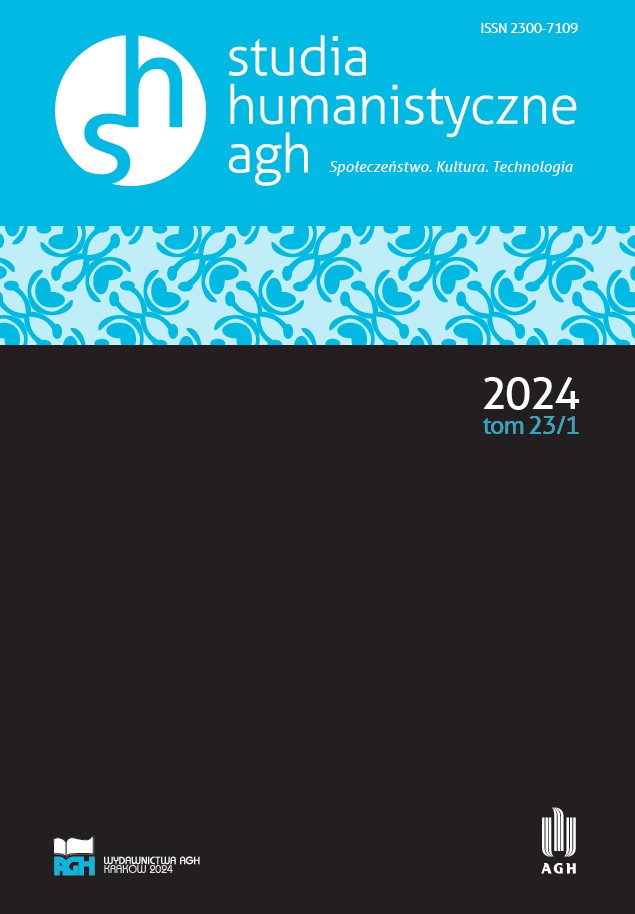“But Why Do They Both Call You ‘Sweetheart’?”. An Anthropological Perspective on Consensual Non-monogamy in Poland
DOI:
https://doi.org/10.7494/human.2024.23.1.6330Keywords:
ethnography, consensual non-monogamy, family, postmodernity, jealousy, polyamory, relationship/ friendshipAbstract
The article explores consensual non-monogamy as a new area of research in anthropology regarding intimate relationships in postmodernity. While psychology and sociology currently dominate this topic, an anthropological approach based on ethnographic research can provide a deeper understanding of this phenomenon. Ethnography allows for the examination of diverse strategies and practices adopted by people living in a nonmonogamous manner. The anthropological approach, which places individual human experience at the center of cultural context, has the potential to broaden an understanding of concepts such as jealousy, relationship/ frienship, and family. The author examines the development of concepts of non-monogamy, polygamy, and monogamous family by looking at the beginnings of anthropology and then critically reading them in relation to the contemporary social world and her own fieldwork conducted among women living in consensually nonmonogamous relationships in Poland.
Downloads
Downloads
Published
Issue
Section
License
Copyright (c) 2024 © Wydawnictwa AGH, Kraków 2024, Creative Commons CC-BY 4.0 License

This work is licensed under a Creative Commons Attribution 4.0 International License.
Authors who publish with this journal agree to the following terms:1) Authors retain copyright and grant the journal right of first publication with the work simultaneously licensed under a Creative Commons Attribution License that allows others to share the work with an acknowledgement of the work's authorship and initial publication in this journal.
2) Authors are able to enter into separate, additional contractual arrangements for the non-exclusive distribution of the journal's published version of the work (e.g., post it to an institutional repository or publish it in a book), with an acknowledgement of its initial publication in this journal.
3) Authors are permitted and encouraged to post their work online (e.g., in institutional repositories or on their website) prior to and during the submission process, as it can lead to productive exchanges, as well as earlier and greater citation of published work (See The Effect of Open Access).



